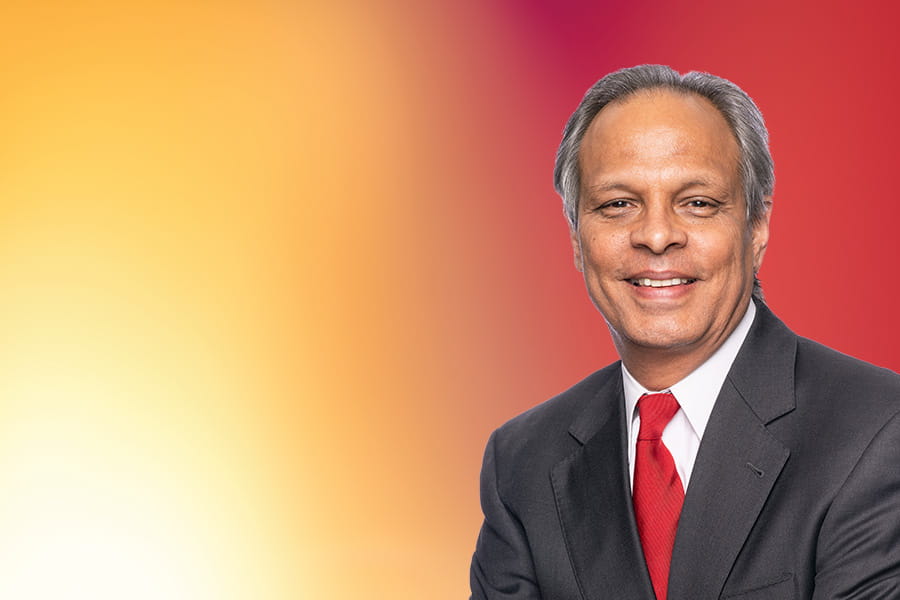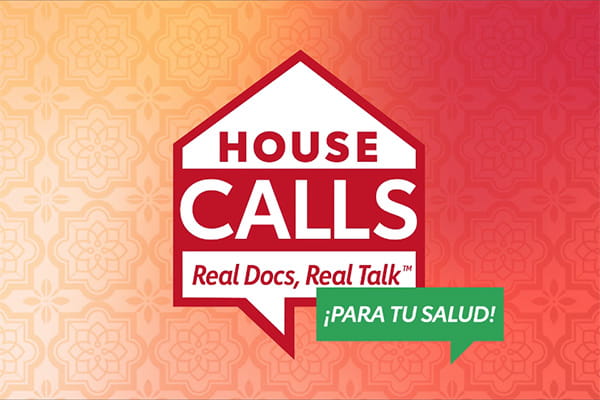House Calls: Real Docs, Real Talk™
House Calls video host, Dr. Eduardo Sanchez, Chief Medical Officer for Prevention at the American Heart Association, answers your important questions about managing your heart and brain health to help you live a longer, healthier life.

House Calls: Real Docs, Real Talk™ EN ESPAÑOL

 We at House Calls understand you have a lot to manage in your daily lives and want to make managing your heart and brain health easier. Whether you want to prevent or better your health, House Calls can address your questions with answers that will fit into your daily routine. American Heart Association House Calls host, Dr. Eduardo Sanchez, Chief Medical Officer for Prevention, carefully reviews your question and offers science-backed advice on heart health habits and conditions, such as:
We at House Calls understand you have a lot to manage in your daily lives and want to make managing your heart and brain health easier. Whether you want to prevent or better your health, House Calls can address your questions with answers that will fit into your daily routine. American Heart Association House Calls host, Dr. Eduardo Sanchez, Chief Medical Officer for Prevention, carefully reviews your question and offers science-backed advice on heart health habits and conditions, such as:
- Diet, Nutrition and Healthy Eating
- Sleep
- Flu, Covid, and RSV
- Importance of Learning CPR
- Hypertension and High Blood Pressure
- Heart Attack and Stroke Recovery
- Diabetes
- Heart Disease and Menopause and other Life Stages
Watch videos and subscribe to the American Heart Association YouTube channel and view the full House Calls playlist today for a healthier tomorrow.
Getting the most out of home blood pressure monitoring
The hidden factors that can put your health at risk
Sodium secrets every woman should know
Episodes by Topic
Cardiovascular Disease
Controlling AFib before it controls you
Debunking the myth: women and heart disease.
Is heart disease genetic? Here's what you need to know!
Ladies, do you know the signs of heart disease?
Latino men's risk for heart disease
Living with Afib? What you need to know to stay heart strong.
Protecting your heart: what women need to know
Six simple steps you can take to treat PAD at home
South Asians and heart disease: What to know
The Signs of Peripheral Artery Disease You Need to Know
What is AFib? A doctor answers your atrial fibrillation questions.
What is PAD? The facts on peripheral artery disease.
What the scientific guidelines say about atrial fibrillation
What to do if you've been diagnosed with PAD
What women need to know about atherosclerosis
Total Health & Wellbeing
Are weight loss meds safe for middle-age weight gain? Hear from experts.
Chest pain: When to see a doctor
Did you know bad sleep can hurt your brain?
Fad diets: What should you believe?
How much salt is too much? The surprising truth about sodium and your heart
How much sleep do you really need?
Indoor air quality and your health
Is it a fad diet or a healthy eating plan? Find out the difference
Latino men: Here's what to know about eating healthy and physical activity
Latino Men: Talk to Your Doctor
Migraines and your heart health
Sodium secrets every woman should know
The link between sleep and brain health
The truth about how weight loss medications work
What is causing your chest pain? How to tell if its serious!
Community Readiness (Prevention, CPR, Vaccination)
Stroke
Can a migraine cause a stroke?
Can artery trauma cause a stroke?
¿Qué es R.Á.P.I.D.O.? Learn about the new Spanish acronym for the signs of a stroke.
Stroke signs every woman should know
Stroke warning signs: what women should watch for
Strokes caused by artery tears: What you should know
Survived a stroke? How to heal in the first 90 days.
The heart-brain link: what you need to know
The stroke risk factors women need to know
High Blood Pressure/Hypertension
Full Playlist — House Calls: Real Docs, Real Talk

Check out the full playlist on YouTube.